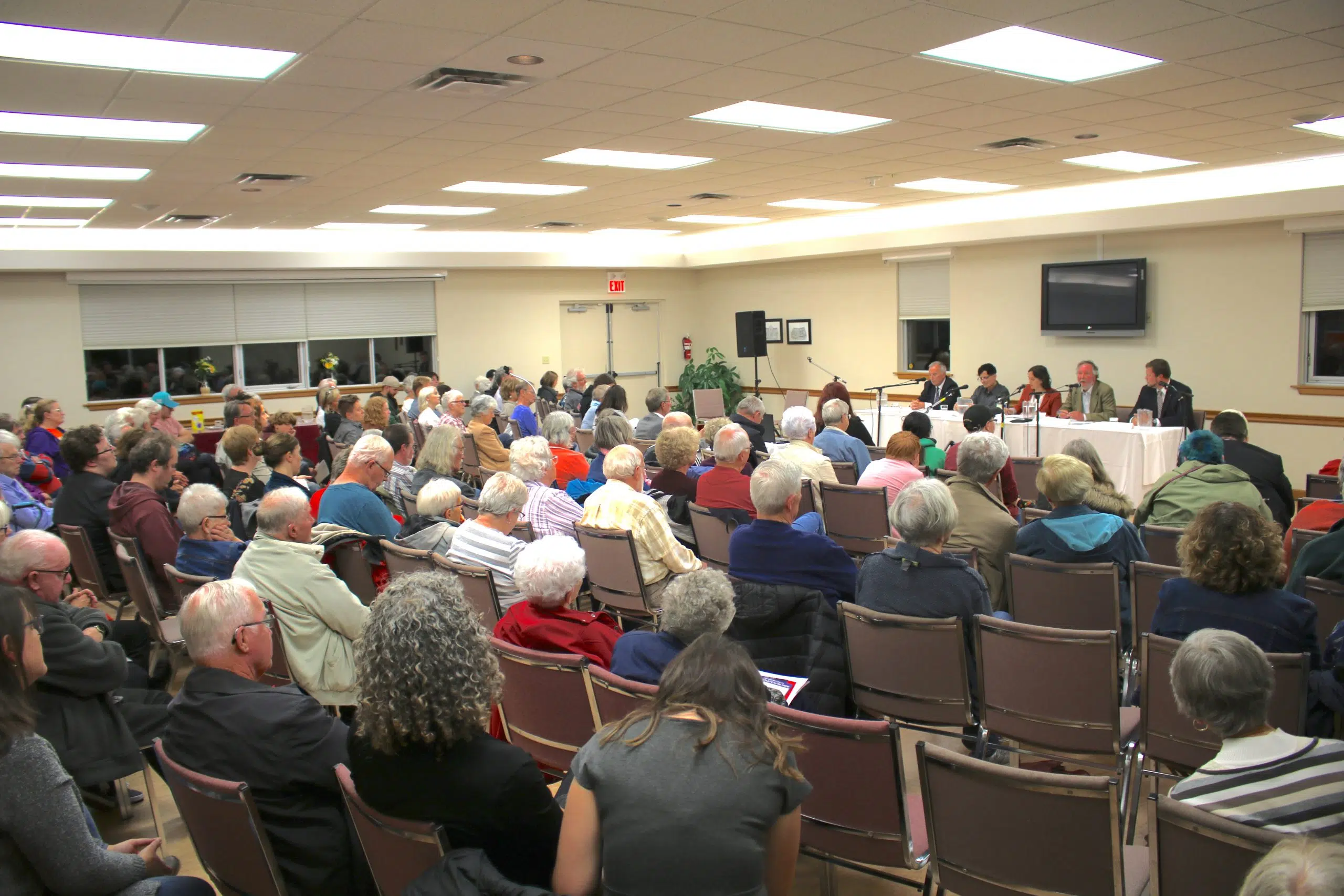With under a week to go until the federal election, candidates in the Bay of Quinte riding faced off again Tuesday, in a debate focused mainly around social justice issues.
All five Bay of Quinte candidates took part and were asked seven questions on various topics including how their parties would create a “just and sustainable future”.
Those questions ranged from how to ensure equitable access to mental health and addiction services, the right to housing, poverty and environmental concerns and more.
The questions were put together by members of the region’s Poverty Roundtable, the St. Joseph’s Parish Social Justice Committee and the United Way of Hastings Prince Edward’s Youth2Youth group.
A large group of citizens at St. Joseph’s Parish was engaged in the discussion for close to two hours.
Here are some of the highlights:
What is your party’s plan for ensuring equitable access to mental health and addition services?
Liberal incumbent Neil Ellis outlined some of the things his party has done over the past four years to address those issues.
He says those investments will continue if his party is reelected.
People’s Part of Canada candidate Paul Bordonaro says they key is to try and identify the root causes of mental illnesses and says open discussions need to be had and people who are suffering from mental illnesses need to be encouraged to come forward.
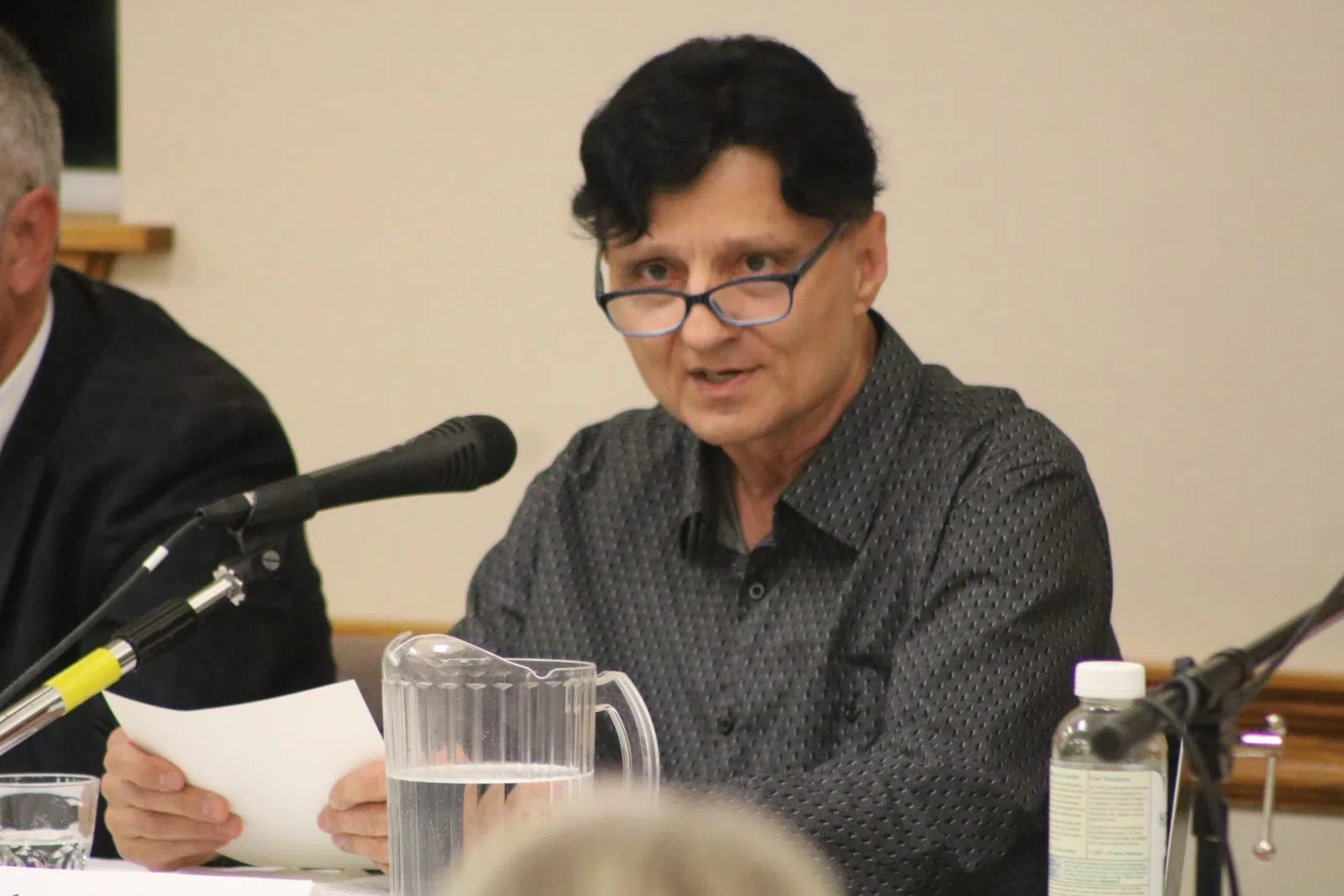
Bay of Quinte Peoples’ Party of Canada Candidate Paul Bordonaro, at an all candidates meeting in Belleville, on October 15, 2019. (Photo: David Foot / Quinte News)
He also made comments about high immigration numbers putting a strain on healthcare systems and adding to the housing crisis, something NDP candidate Stephanie Bell rebuked immediately at the start of her comments.
Bell went on to note that her party’s plan combines a lot of things into one saying that dealing with housing problems, the environment and people’s physical health, will all help to address the causes of mental illnesses.
The Green Party’s Dan Celovsky told the crowd that addiction is a health issue, not a criminal justice issue and that mental health is just as important as physical health.
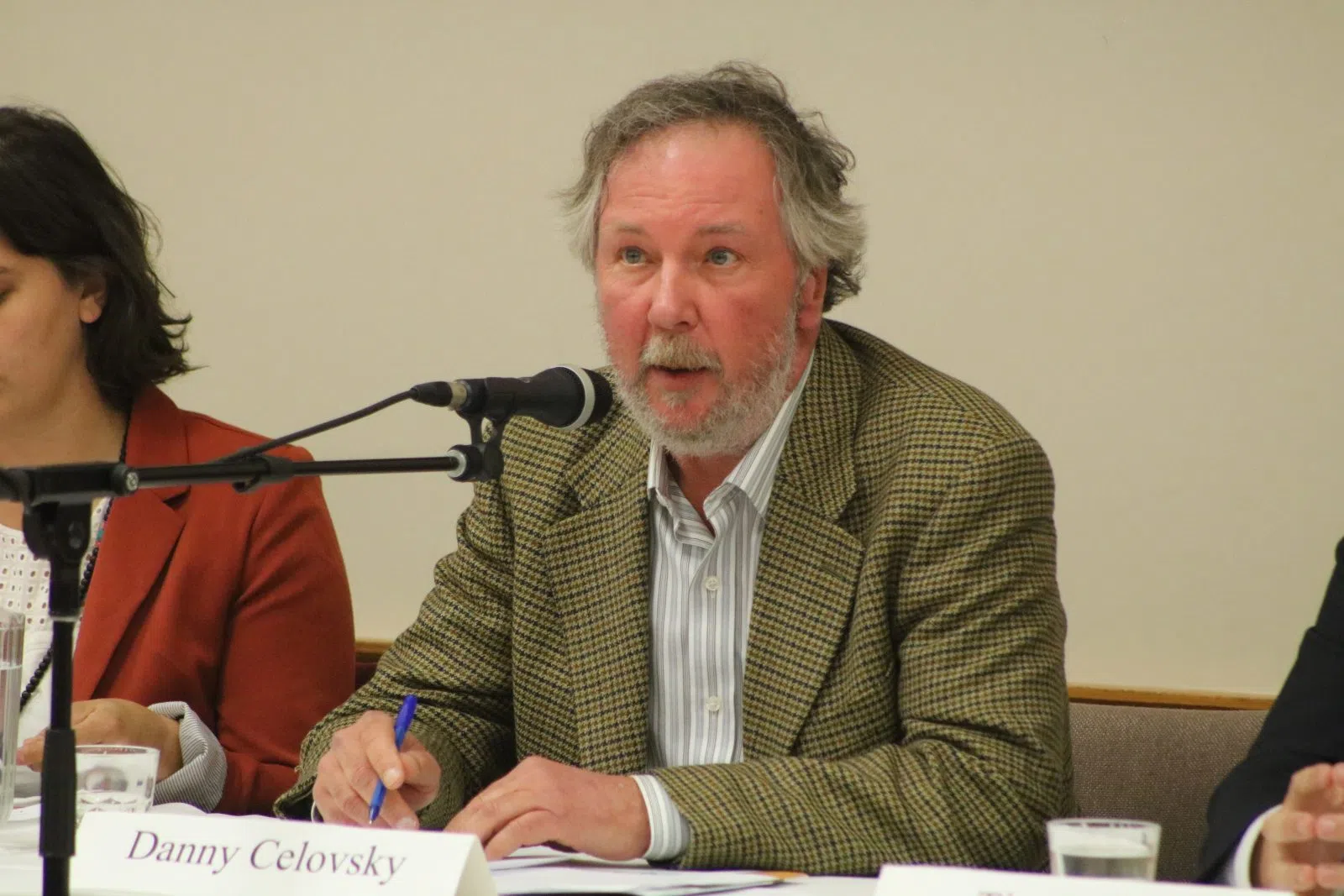
Bay of Quinte Green Party Candidate Dan Celovsky, at an all candidates meeting in Belleville, on October 15, 2019. (Photo: David Foot / Quinte News)
Conservative Tim Durkin shared his own experience in dealing with depression and compared mental illness to a broken arm, or the flu, saying that everyone suffers differently and there’s no single fix to help everyone.
He added that if elected, he would push his party to create a national mental health strategy.
Does your party agree that housing is a fundamental right and how would you ensure affordable housing locally?
Bordonaro began the discussion by saying that housing should be a fundamental right, as should food and water.
But, he added that the housing issue is something that’s been ongoing for 40 years.
He added that municipalities need to do more to address the issue, and again brought up the City of Quinte West’s purchase of the old College Street School as an example, saying if the plan for that building is housing, something needs to be done soon.
Bell says the NDP’s plan has a large section on affordable housing, because if you don’t have affordable housing, it’s going to affect your ability to feel mentally well and again, everything links together.
She says if elected, her party is committed to building 500,000 carbon-neutral homes and make use of tiny homes, as a good use of resources.
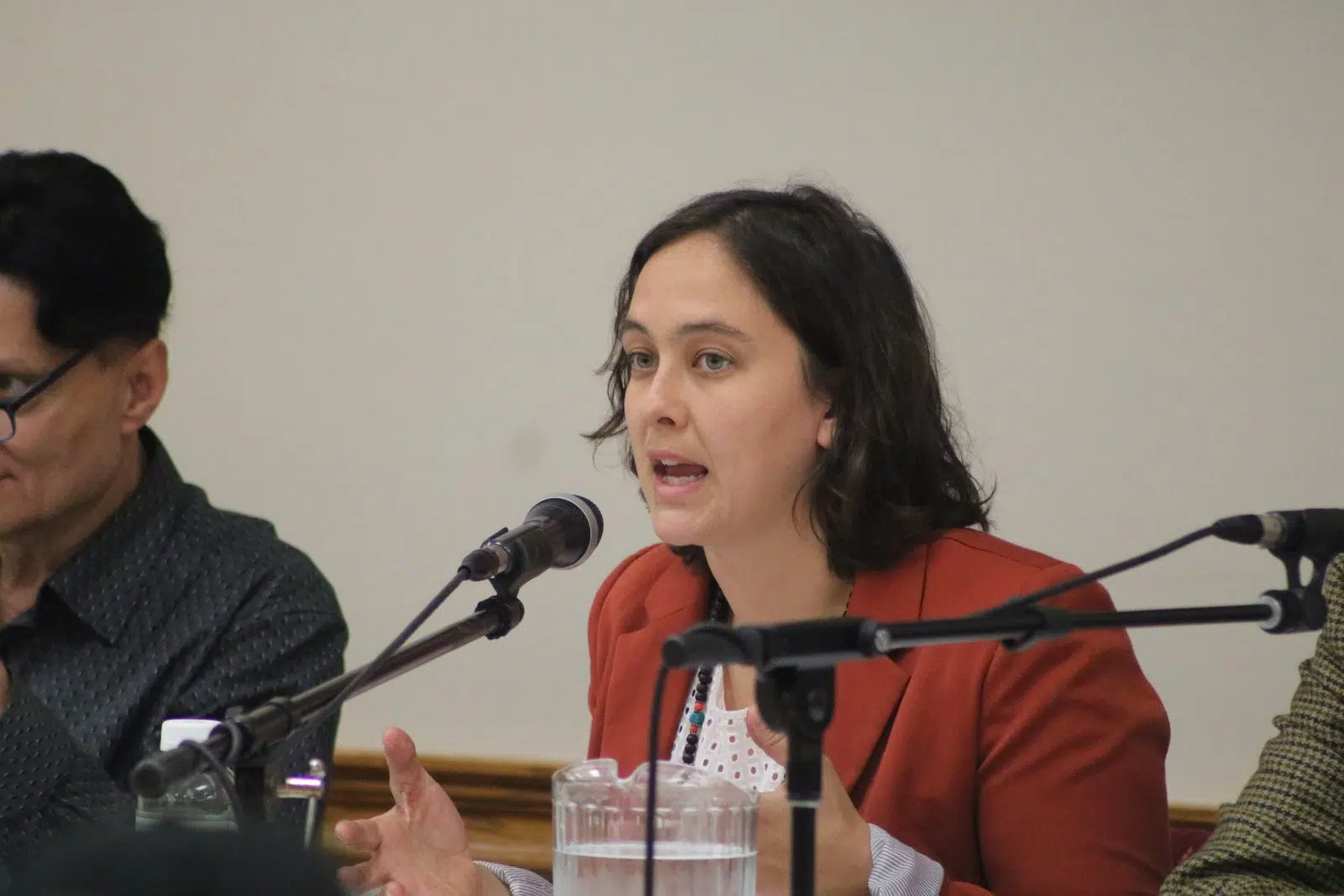
Bay of Quinte NDP Candidate Stephanie Bell, at an all candidates meeting in Belleville, on October 15, 2019. (Photo: David Foot / Quinte News)
Celovsky told the gathering that housing is an issue that’s dear to his heart and it’s not just about having affordable housing, but safe and comfortable housing as well.
He says it’s going to take all three levels of government working together to fix the housing crisis.
He also says the target locally should be to have one bedroom apartments available for $500 per month.
Durkin agreed that there aren’t enough people working in the trades and getting more people qualified to build houses would help.
He also says it might be a good idea to start building more small homes that people can afford, instead of large ones.
Ellis pointed to the national housing strategy the Liberals launched in 2015 and says the goal is cut chronic homelessness in half within the next 10 years.
He says that his party has already invested $5.5 million into affordable housing in our riding and that trend would continue if he’s reelected.
Does your party support a guaranteed basic income?
Bell answered first on this question and says her party has talked about a guaranteed basic income, but hasn’t laid out an implementation plan.
She says, if elected, the NDP plan is to continue a pilot study that had started in Ontario around a guaranteed income, while continuing to support current programs.
Celovsky says he’s 100% behind a guaranteed basic income and that people who work in the arts and similar sectors, may be able to thrive with that kind of support.
Durkin says it’s getting to a point that no matter how much people are taxed, the debt and deficit continues to grow.
He says one of his party’s main promises is a universal tax break.
He says the more money people have in their pockets, the less they’ll need from the government.
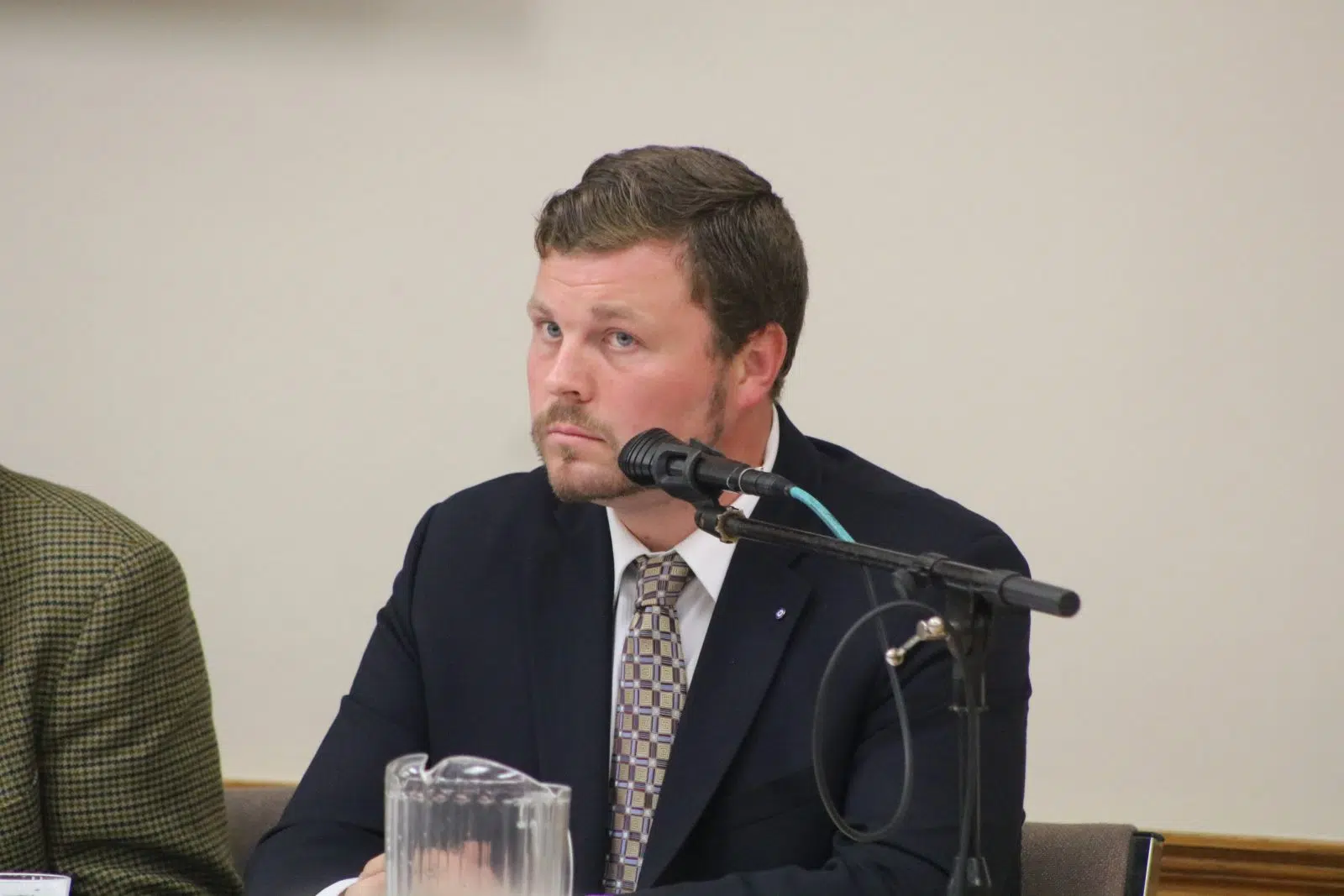
Bay of Quinte Conservative Candidate Tim Durkin, at an all candidates meeting in Belleville, on October 15, 2019. (Photo: David Foot / Quinte News)
Ellis says he’s suggested that the Bay of Quinte Riding have its own basic income pilot project, but also noted some investments and commitments the Liberals have in their platform.
He added that his party is behind the idea for a $15 per hour minimum wage and says right now Canada has the lowest level of poverty in its history, but that’s not enough.
Bordonaro says he agrees that a basic income pilot project would be effective, but changes need to be made so there’s a fair and equitable system across the board.
Does your party have a plan to foster intentional dialogue with youth and act on their concerns to instil a sense of hope?
Celovsky kicked off answers on this question making an impassioned point that it’s imperative to get young people into politics and that’s exactly what his party plans to do.
Durkin told the crowd it’s about reengaging youth in politics and getting them to trust that their vote makes a difference, because many of them have lots of hope in the system.
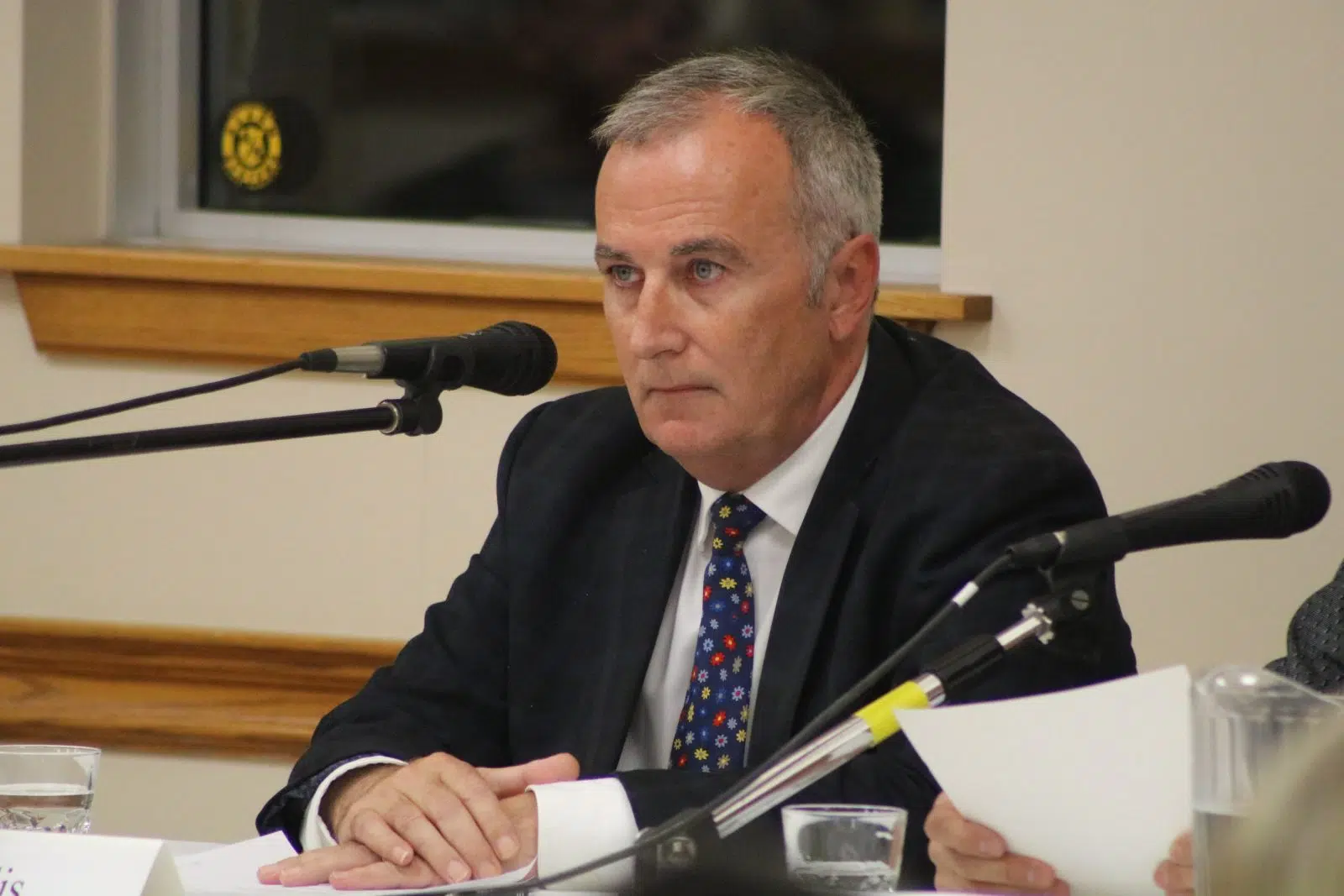
Bay of Quinte Liberal Candidate Neil Ellis, at an all candidates meeting in Belleville, on October 15, 2019. (Photo: David Foot / Quinte News)
Ellis promoted the number of youth initiatives his party has already put into place and says those would continue if reelected.
Bordonaro says his party wants to do politics differently and that the electoral system needs an overhaul that will create opportunities for youth.
He says in the long run, politics needs to be more positive, because people have enough issues to worry about.
Bell says her party’s mandate is to find candidates of different ages, ethnicities and lifestyles to encourage more engagement.
She also agreed that if there were more positive politics and less mudslinging, young people might feel more engaged.
You can learn more about these candidates and get more local news coverage from the campaign trail by visiting our Canada Votes page, where you’ll also be able to get live poll results on election night.
Plus, you can tune in to Canada Votes on 800 CJBQ, starting at 9:00 p.m. on October 21, featuring results and analysis from our election night panel.
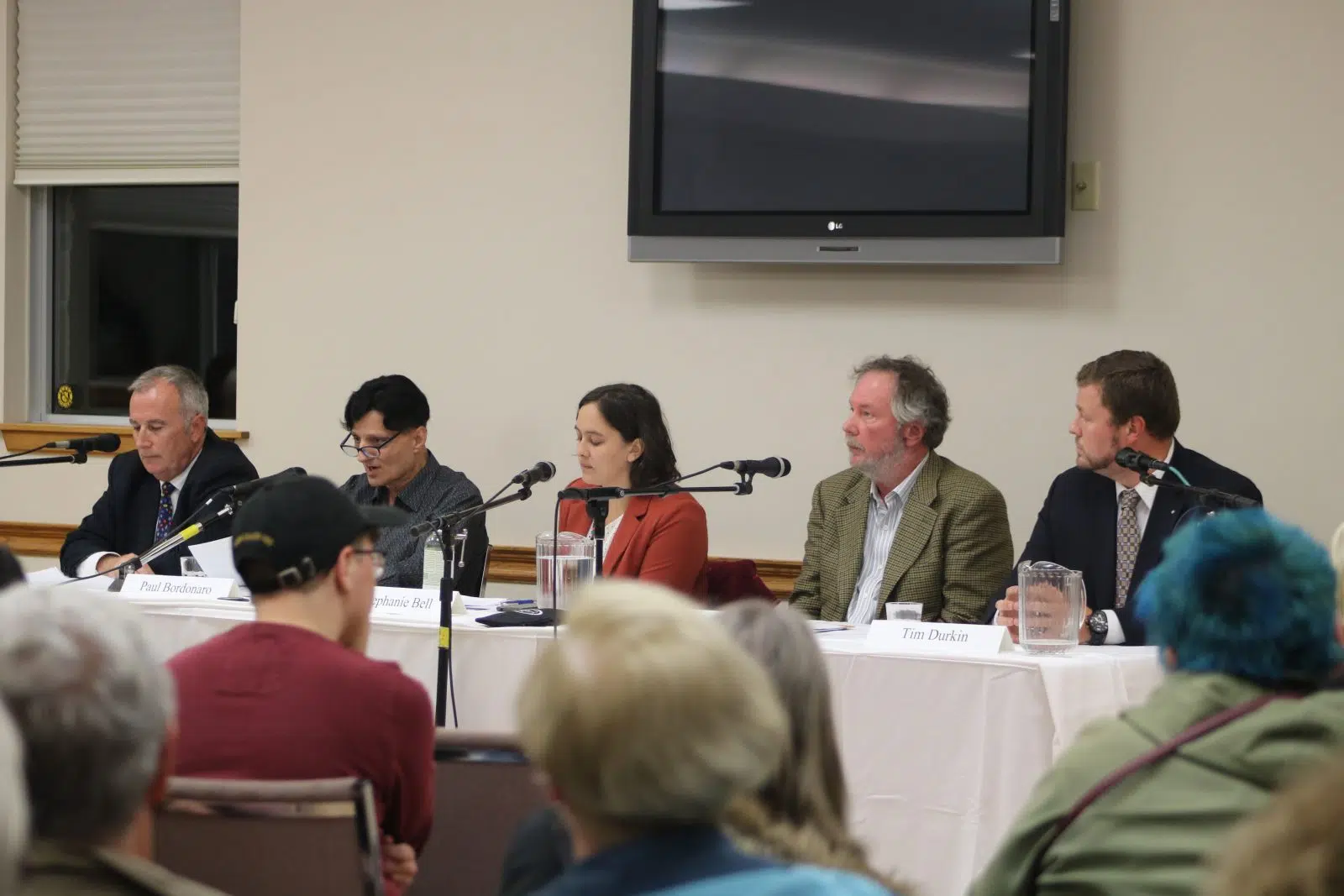
Candidates for the Bay of Quinte Riding speak at a debate at St. Joseph’s Parish Centre in Belleville, on October 15, 2019. (Photo: David Foot / Quinte News)





